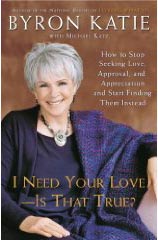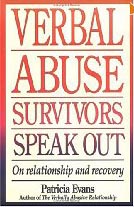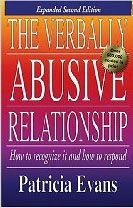Review of Love and War, by John and Stasi Eldredge
Finding the Marriage You’ve Dreamed Of
by John and Stasi Eldredge
Doubleday Religion, New York, 2009. 222 pages.
Starred Review
I recently filed for divorce, more than four years after my husband abandoned me. Why would I torment myself by reading a book on marriage?
I have a few reasons: First, is that I want to know what went wrong so I don’t repeat the same mistakes. I still believe that God told me that some day our marriage would be restored, and I would want that marriage to be a harmonious partnership before God. It’s inspiring to read about how that can happen.
Actually, I picked up the book ready to quickly turn it back in if I found the contents painful or not applying at all. But I avidly read the whole book, liking it more and more the further I read.
I like everything I’ve already read by John & Stasi Eldredge, particularly Captivating, and The Sacred Romance. I like their way of taking the big picture when talking about the Christian life. They see the Christian life as a grand fairy tale, and I love that approach, as is evidenced by the fact that I’m also reading secular books talking about what fairy tales teach us about life, such as Once Upon a Midlife, by Allan B. Chinen, and Women Who Run With the Wolves, by Clarissa Pinkola Estes.
The authors tie into that concept right away. In the introduction, Stasi describes watching her husband John conduct a wedding ceremony.
“No matter how many weddings I attend, there is something inexplicably stirring about all this — the ceremony, the making of vows, the great cloud of witnesses, something about this remarkable act feels — how does one describe it? Mythic.”
She gives some of John’s message to the crowd:
“‘Dearly Beloved, you see before you a man and a woman. But there is more here than meets the eye. God gave to us this passion play to reenact, right here and now, the story of the ages. This is the story of mankind, the one story we have been telling ourselves over and over again, in every great myth and legend and poem and song. It is a love story, set in the midst of desperate times, set in the midst of war. It is a story of a shared quest. It is a story of romance. Daniel and Megan are playing out before you now the deepest and most mythic reality in the world. This is the story of God’s romance with mankind.’
“I’m curious what the audience is thinking. When John speaks of love and marriage as deeper than fairy tale, what does our heart say in reply? I know the young women listening just said in their hearts, Oh I hope that is true! I long for that to be true! The young men are wondering, If that is true, what is this going to require of me? The older women filter this through the years of our actual marital experience; they are thinking, Hmmm. (It is a mixture of Yes, I once longed for that, and, Perhaps it will come true for her; I wonder if it still might come true for me.) And the older men sitting here now are simply thinking, I wonder if the reception will have an open bar.
“‘You don’t believe me,’ John says. ‘But that’s because we don’t understand fairy tales and we don’t understand the Gospel which they are trying to remind us of. They are stories of danger; they are stories where evil is very, very real. They are stories which require immense courage and sacrifice. A boy and a girl thrown together in some desperate journey. If we believed it, if we actually saw what was taking place right here, right now, we would cross ourselves. We would say desperate prayers, earnest prayers. We would salute them both and we would hold our breath for what happens next.'”
I love John’s charge to the couple:
“Daniel, Megan, in choosing marriage you have chosen an assignment at the frontlines in this epic battle for the human heart. You will face hardship, you will face suffering, you will face opposition, and you will face a lie. The scariest thing a woman ever offers is to believe that she is worth pursuing, to open her heart up to pursuit, to continue to open up her heart and offer the beauty she holds inside, all the while fearing it will not be enough. The scariest thing a man ever chooses is to offer his strength without knowing how things will turn out. To take the risk of playing the man before the outcome is decided. To offer his heart of strength while fearing it will not be enough.
“A lie is going to come to both of you, starting very soon, in subtle and not-so-subtle ways. It can’t be done. It’s too hard. We had unrealistic expectations. It isn’t worth it. The lie to you, Megan, will be, ‘You are nothing more than a disappointment.’ And the lie to you, Daniel, will be, ‘You are not really man enough for this.’ And so, I have two words for you today. Words that I want you to keep close in your hearts as you go forward: You are. Megan, you are radiant, you shimmer, you shine, you are a treasure of a woman, a gem, you are. Daniel, you are a man, you are strong, and you are valiant. You have what it takes. Hold this close to your hearts. It can be done. And it is worth it.”
Early on in this ordeal of my marriage falling apart, I found help and encouragement from rejoiceministries.org. One helpful lesson they taught me right from the start is that my spouse is not my enemy. Instead Satan himself is the enemy of our marriage. John and Stasi Eldredge echo that message. The “War” in the title is the battle that a man and his wife do together against the Enemy of their marriage.
Right away, they give us tips about how that battle is carried out, with lies. A wife starts believing the lie that she is not valuable, and so she gets petty about wanting her husband to do more around the house, to show that he values her. Then her husband, in turn, doesn’t feel like his wife thinks he is an adequate man, and resentment builds up on both sides.
This isn’t a book about communication techniques or about how to get your spouse to treat you right. This is a book with stories to explain how you can see marriage as a team effort against a mutual enemy. John and Stasi give stories from their own marriage to show how this can play out — both failures and successes.
Love & War is a wonderful book for romantics. It tells you that a great marriage is indeed possible. It gives you a lofty vision and inspires you to work with your spouse to go after it.
And don’t we all start out in marriage as romantics?
Read the book! I won’t try to summarize each chapter, since I would have too much to say. I’ll finish the review with some inspiring words from the authors at the end of Chapter One:
“Because marriage is hard, sometimes painfully hard, your first Great Battle is not to lose heart. That begins with recovering desire — the desire for the love that is written on your heart. Let desire return. Let it remind you of all that you wanted, all that you were created for.
“And then consider this — what if God could bring you your heart’s desire? It’s not too late. It isn’t too hard. You are not too far along nor are you and your spouse too set in your ways. God is the God of all hope. He is, after all, the God of the Resurrection. Nothing is impossible for him. So give your heart’s desire some room to breathe.
“What if the two of you could find your way to something beautiful?
“That would be worth fighting for.”
Find this review on Sonderbooks at: www.sonderbooks.com/Nonfiction/love_and_war.html
Disclosure: I am an Amazon Affiliate, and will earn a small percentage if you order a book on Amazon after clicking through from my site.
Source: This review is based on a library book from the Fairfax County Public Library.
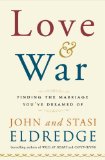
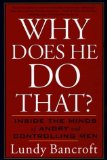
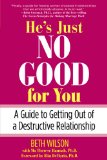

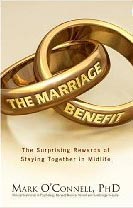 The Marriage Benefit
The Marriage Benefit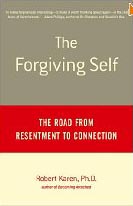 The Forgiving Self
The Forgiving Self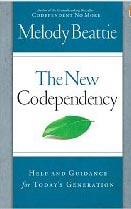 The New Codependency
The New Codependency